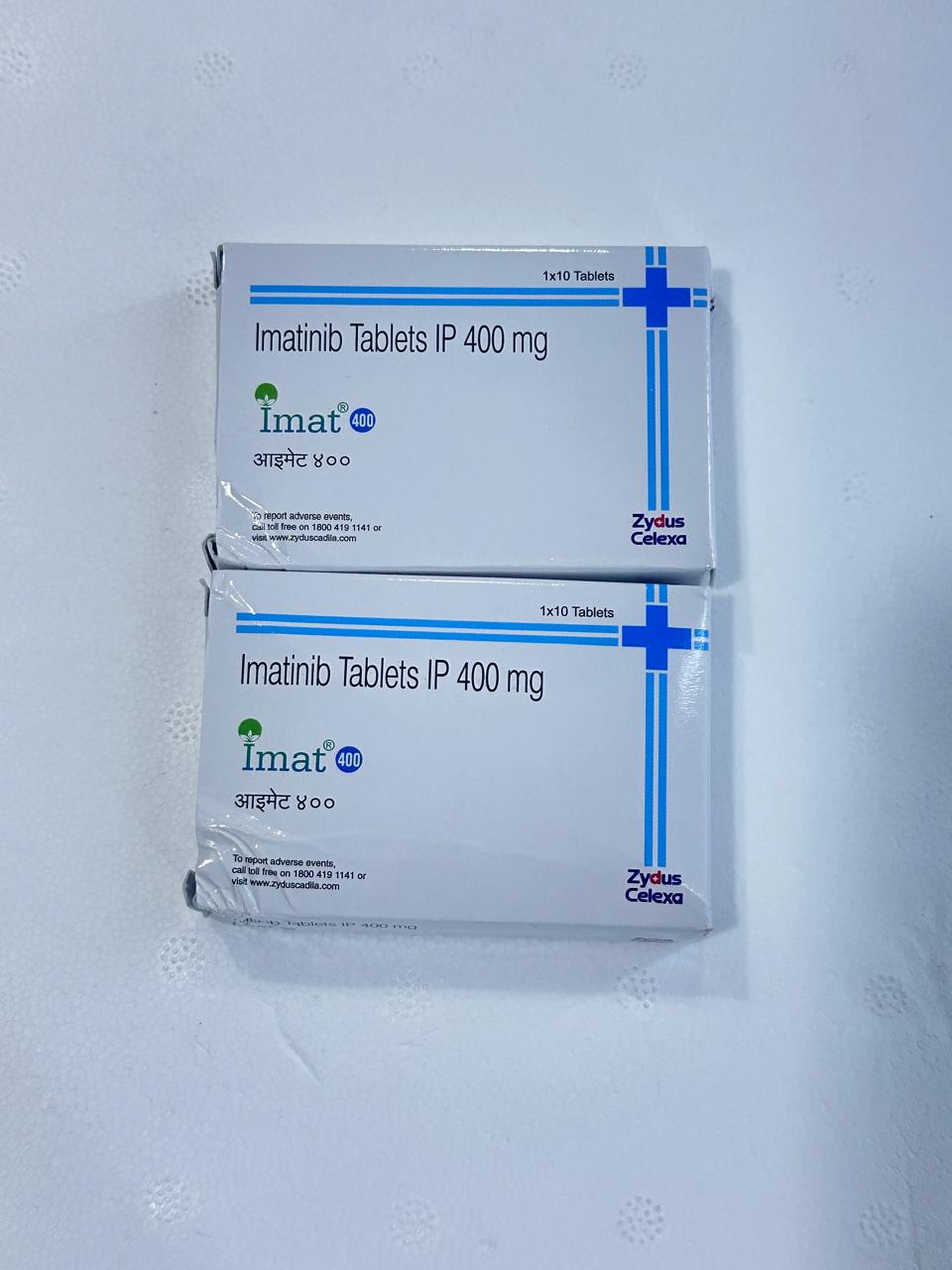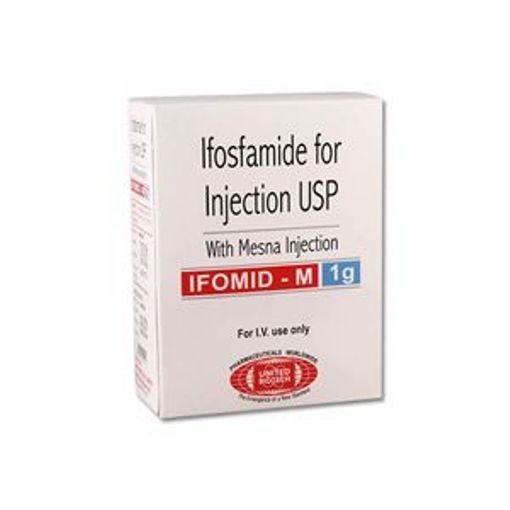Imat 400 is a brand name for Imatinib mesylate, a tyrosine kinase inhibitor that targets the BCR-ABL protein, which is responsible for chronic myeloid leukemia (CML). It is used to treat CML and other cancers.
Composition:
Each 400mg tablet of IMAT 400 Imatinib Mesylate (400mg) contains imatinib mesylate, a tyrosine kinase inhibitor that targets the BCR-ABL fusion protein in CML and other kinases involved in the growth and proliferation of cancer cells.
Mechanism of Action: Imatinib works by binding to the BCR-ABL protein, which inhibits its activity and prevents the uncontrolled growth of abnormal white blood cells.
Use: Imat 400 is used to treat:
- Chronic myeloid leukemia (CML) in chronic phase, accelerated phase, or blast crisis.
- Acute lymphoblastic leukemia (ALL) in adults with Philadelphia chromosome-positive (Ph+) disease.
- Acute myeloid leukemia (AML) in adults with Ph+ disease.
Dosage: The recommended dosage of Imat 400 is:
- Chronic myeloid leukemia (CML): 400 mg once daily.
- Acute lymphoblastic leukemia (ALL) in adults with Philadelphia chromosome-positive (Ph+) disease: 400 mg once daily.
- Acute myeloid leukemia (AML) in adults with Ph+ disease: 400 mg once daily.
Side Effects: Common side effects of Imat 400 include:
- Nausea
- Vomiting
- Diarrhea
- Abdominal pain
- Fatigue
- Headache
- Muscle pain
- Skin rash
- Edema
- Increased liver enzymes
Recommendation: Imat 400 should be administered under the guidance of an experienced healthcare provider, usually an oncologist or hematologist. Patients should be monitored for signs of bone marrow suppression or other side effects.
Important Note:
- Imat 400 may cause severe allergic reactions, including anaphylaxis.
- Patients with a history of severe allergic reactions or those who are taking immunosuppressive medications should be cautious when using Imat 400.
- Women of childbearing potential should avoid pregnancy during treatment with Imat 400 due to the risk of fetal harm.
- Patients with pre-existing kidney disease should be monitored closely during treatment with Imat 400 due to the risk of renal toxicity.
It’s important to note that this information is intended to serve as a general overview of Imat 400 and its uses, and should not be considered a substitute for medical advice from a qualified healthcare provider or oncologist.



Reviews
There are no reviews yet.